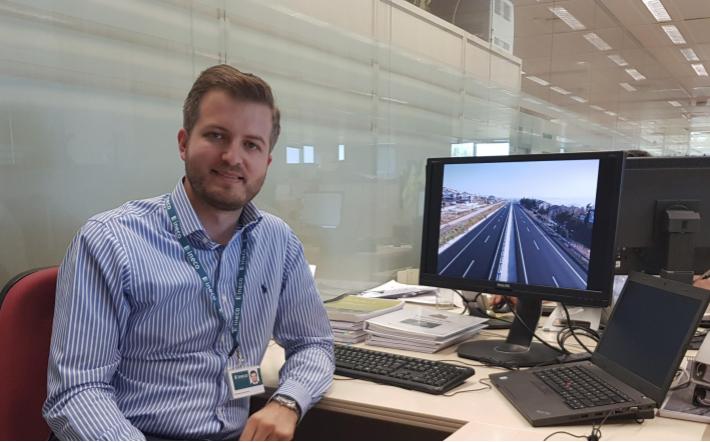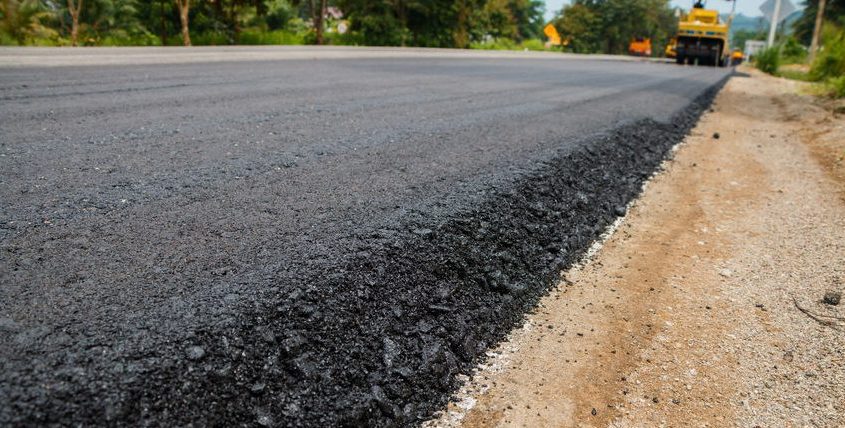SHARE
Road Construction Innovation: Is it Difficult to Innovate in this Sector?
After the Asphalting in the Rain Challenge was completed, two solutions were chosen as winners of this common problem in road construction.
Sacyr picked the two solutions that best met the evaluation criteria of the challenge and the engineers awarded were Henrique Miranda and José Manuel Sanz.
We reached out to José Manuel to learn more about him and his professional experience and knowledge about innovations in road construction.
 José Manuel Sanz
José Manuel SanzCan you introduce yourself briefly? What is your more relevant working experience?
My name is José Manuel Sanz and I was born 28 years ago in Guadalajara, Spain and I'm a Civil Engineer. My working experience started right after I finished my college degree: I moved to the US with Dragados to build a dam in California which belonged to the San Francisco water supply system. It was a very rewarding experience, especially because I got to work on the construction site abroad, in America.
After that, I came back to Spain because of a job offer at the Spanish engineering firm Euroconsult, where I started working on road engineering, more precisely road analysis, design, and renovation. During that time I learned almost everything I know about roads and pavements because I participated in several international projects. Last year I started a job in public engineering at Ineco, where I currently work on projects and road renovation specialized in pavements.
What projects were the most important for you?
I could name quite a few projects but I will mention the three ones related to my working experiences. The first one, the most life-changing, the "American dream": working in the USA with American colleagues and adapting to their mindset and way of doing things. I understand them better and I have a global perspective of the civil engineering profession.
Another project that I will never forget is the development of a Pavement Management System for the Turkish National Department of Traffic (KGM). Firstly, I learned about the evolution models of pavements and their life-cycle. Secondly, I got to travel across the Anatolian peninsula where I had the opportunity to work both with local partners and KGM employees.
Lastly, I participated in the Management Plans for the 1st Generation Road Pavements for the Spanish Ministry of Public Works, which were developed with the support of the HDM-4 tool, for pavement-modeling and investment in roads.
What are the most outstanding and recent advances in road construction?
In the past few years, some modest progress has been made in road conservation and operation techniques. However, the core of the rehabilitation activities has not moved on since the development of asphalt mixes in the early 20th century. Progress in this area is recently linked to management systems (generally, pavements and structures). These systems have to be fed with constant information of the road and require specifically trained staff, so, even though their implementation has been planned for years, it still has a long way to go. As a matter of fact, we could enjoy a smart road management in the next decade if the administration and technical experts in these systems showed greater commitment. I call it smart road management because it requires and it always will require human labor since the smart part of engineering is the people checking and adapting the models and programs used to measure the status of our infrastructures.
Why do you think it is difficult to innovate in the road construction sector?
Innovative advances in the road construction world take a long experimental period and consolidation time. First of all, we must take into consideration that the available and well-known techniques are so developed that they are really cost-effective: they can be implemented anywhere in the world with well-known suppliers, limited risks, and at a reasonable price, which represents a comfortable case-scenario.
Secondly, concerning civil engineering, the techniques have a strong impact on people's safety and on the environment, both during the construction process and the use of the road. For this reason, innovations are always welcomed with caution. It is vital to ensure -- at all times in every construction process and technical development -- the safety of both workers and final users of the infrastructure, and limit negative impacts on the environment.
Which ones do you think will be the most immediate innovations in the coming years in this sector?
The main innovation fields in road construction, from an infrastructure point of view, would be the experiments around new types of additives for bitumen mixes (there is already polymer and rubber powder) and a shift towards a circular economy by repurposing waste materials from construction and demolition (RCDs) and pavement recycling techniques. Another important innovation field is the renovation of telecommunication systems installed on the road through IT, which will improve the connectivity between the vehicle and the infrastructure.
From the user's perspective, the main research line is the autonomous car which, even though it is considered to be part of the driver's experience, will have a strong impact on road management. This is a future that civil engineering has not started to work on yet, but it is already here.
Share your thoughts with us and explore what else ennomotive has to offer you.
